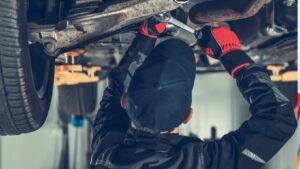Car Maintenance Cost Per Year
When considering the average costs across different car brands, it’s essential to note that maintenance expenses can vary significantly. For instance, luxury brands like BMW or Mercedes-Benz might have higher maintenance costs due to specialized parts and a more intricate design.  On the other hand, economy cars such as Toyota or Honda generally have lower maintenance costs, making them more budget-friendly options for car owners.
On the other hand, economy cars such as Toyota or Honda generally have lower maintenance costs, making them more budget-friendly options for car owners.
Moving on to the cost of neglecting regular maintenance, it’s vital to understand that skipping routine services can lead to higher expenses in the long run. Neglecting oil changes, tire rotations, or brake inspections can result in serious damage to the vehicle, requiring costly repairs. By staying on top of regular maintenance schedules, car owners can prevent major issues and ultimately save money on avoidable repairs.
Key Factors Influencing Car Maintenance Costs
When considering car maintenance costs, several key factors come into play. Understanding these factors can help car owners budget effectively for their vehicle’s upkeep.
The age of a vehicle significantly impacts its maintenance costs. Older cars generally require more frequent repairs and part replacements, leading to higher overall maintenance expenses. Additionally, as cars age, they are more prone to mechanical issues and wear and tear, necessitating increased upkeep.
The type of car and its engine size are crucial determinants of maintenance costs. Luxury vehicles and those with larger engines typically incur greater expenses due to the need for specialized parts and services. On the other hand, compact or economy cars tend to have lower maintenance costs since their parts are more widely available and affordable.
Car Maintenance Cost Per Year can vary depending on the region where the vehicle is serviced. Factors such as labor rates, availability of parts, and local regulations can influence maintenance expenses. For example, urban areas may have higher labor costs, leading to increased overall maintenance expenditures compared to rural areas.
By considering these key factors, car owners can better anticipate and manage their annual maintenance costs, ensuring that their vehicles remain in optimal condition without breaking the bank.
Tips to Reduce Car Maintenance Costs
Ensuring a regular maintenance schedule is essential in minimizing long-term car expenses. By sticking to the manufacturer’s recommended service intervals for tasks like oil changes, filter replacements, and brake inspections, car owners can prevent major issues before they escalate. Proactively caring for the vehicle can help identify potential problems early on, saving money on costly repairs down the road.
Selecting reputable and reliable service providers can have a significant impact on reducing maintenance costs. Opting for certified mechanics or authorized service centers ensures that the work is done correctly and with quality parts. While independent mechanics may offer lower prices, the risk of subpar workmanship or the use of inferior parts could lead to additional expenses in the future. 
Understanding the influence of maintenance on the value and lifespan of a vehicle is crucial for owners looking to make informed decisions. Several factors come into play, affecting both the overall value of the car and how long it will remain in good working condition.
Maintaining a regular maintenance schedule significantly impacts the resale value of a car. Vehicles with complete service records and a history of consistent upkeep tend to fetch higher prices on the market compared to those with spotty maintenance histories. Prospective buyers are often willing to pay more for a well-maintained car as it indicates reliability and care from the previous owner.
Engaging in routine maintenance not only preserves the value of the car but also enhances its longevity. Conducting scheduled services like oil changes, brake inspections, and tire rotations keeps the vehicle running smoothly, reducing the risk of unexpected breakdowns. By addressing minor issues promptly, owners can prevent them from escalating into major and costly repairs, ultimately extending the lifespan of the vehicle.

